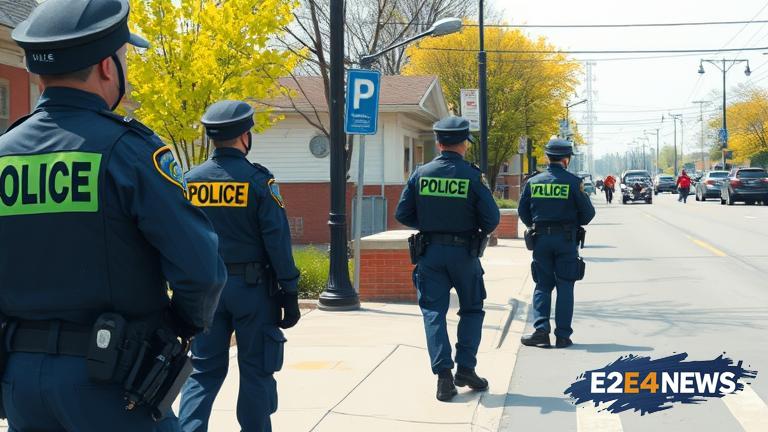The debate over the role of federal military force in addressing local problems has sparked a heated discussion across the United States. Proponents of federal intervention argue that it is necessary to maintain law and order, particularly in areas plagued by high crime rates. However, critics contend that this approach is not only ineffective but also counterproductive, as it can lead to the militarization of local police forces and the erosion of trust between law enforcement and the communities they serve. In recent years, there have been numerous instances of federal military force being deployed to address local problems, often with disastrous consequences. For example, the use of military-grade equipment and tactics during the 2014 protests in Ferguson, Missouri, only served to escalate tensions and further alienate the local community. Similarly, the deployment of federal troops to the US-Mexico border has been widely criticized as a heavy-handed and ineffective approach to addressing immigration issues. In contrast, community-based policing strategies have been shown to be highly effective in reducing crime and improving relationships between law enforcement and the communities they serve. These approaches focus on building trust and fostering cooperation between police and local residents, rather than relying on heavy-handed tactics and military-grade equipment. By working closely with local community leaders and organizations, police can gain a deeper understanding of the underlying issues driving crime and develop targeted strategies to address them. This approach not only helps to reduce crime but also promotes a sense of safety and security among local residents. Furthermore, community-based policing strategies are often more cost-effective than federal military intervention, as they rely on existing local resources and infrastructure rather than requiring the deployment of expensive military equipment and personnel. Despite the many benefits of community-based policing, there are still many challenges to implementing these strategies, particularly in areas with limited resources and high crime rates. To overcome these challenges, it is essential to provide local police forces with the training, funding, and support they need to develop and implement effective community-based policing strategies. This can involve providing grants and other forms of funding to support community-based initiatives, as well as offering training and technical assistance to help local police forces build their capacity and develop new skills. Additionally, it is crucial to promote a culture of transparency and accountability within local police forces, as this helps to build trust and ensure that police are responsive to the needs and concerns of the communities they serve. In conclusion, the use of federal military force to address local problems is a misguided approach that can lead to more harm than good. Instead, we should be focusing on community-based policing strategies that prioritize building trust, fostering cooperation, and promoting a sense of safety and security among local residents. By working together to develop and implement these strategies, we can create safer, more just, and more equitable communities for all. The importance of community policing cannot be overstated, as it has the potential to transform the way we approach law enforcement and promote a more positive and productive relationship between police and the communities they serve. Moreover, community policing is not just a moral imperative, but also a practical necessity, as it helps to reduce crime, improve public safety, and promote economic development. In the long run, community policing is the key to creating a more just and equitable society, where everyone has the opportunity to thrive and reach their full potential. Ultimately, the success of community policing depends on our ability to work together and build a culture of trust, cooperation, and mutual respect between law enforcement and the communities they serve. This requires a fundamental shift in the way we think about law enforcement, from a focus on punishment and control to a focus on prevention, community engagement, and social justice. As we move forward, it is essential to prioritize community policing and provide local police forces with the resources and support they need to develop and implement effective community-based strategies. By doing so, we can create a brighter future for ourselves and for generations to come, where everyone has the opportunity to live in safety, dignity, and respect.
